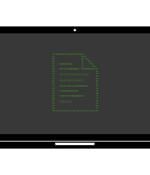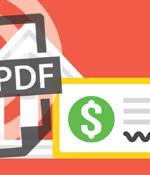Security News

Microsoft has released an optional out-of-band update for all supported Windows 10 versions to address an issue preventing customers from opening PDF documents using some applications. The KB5004760 emergency update is available for devices running client editions of Windows 10 versions 2004, 20H2, and 21H1, as well as Windows Server versions 2004 and 20H2. "An out-of-band optional update is now available on the Microsoft Update Catalog to address an issue in which Internet Explorer 11 and apps using the WebBrowser control might fail to open PDFs," the company says.

The pushers behind the SolarMarker backdoor malware are flooding the web with PDFs stuffed with keywords and links that redirect to the password-stealing, credential-snarfing malware. The attackers have expanded their range, according to Microsoft Security Intelligence, whose researchers have seen them shift from originally using Google Sites to now primarily using Amazon Web Services and the Strikingly free website builder service.

Adobe's product security response machine revved into high gear this week with the release of multiple patches for gaping security holes in widely deployed software products. According to the San Jose, Calif. software maker, this month's batch of patches address a swathe of potentially dangerous vulnerabilities in Adobe Acrobat and Reader, Adobe Photoshop, and the ever-present Adobe Creative Cloud Desktop Application.

Cybersecurity researchers have disclosed two new attack techniques on certified PDF documents that could potentially enable an attacker to alter a document's visible content by displaying malicious content over the certified content without invalidating its signature. "The attack idea exploits the flexibility of PDF certification, which allows signing or adding annotations to certified documents under different permission levels," said researchers from Ruhr-University Bochum, who have systematically analyzed the security of the PDF specification over the years.

Certified portable document format files are used to securely sign agreements between two parties while keeping the contents' integrity protected, but a new report found the security protections on most certified PDF applications were inadequate and left organizations exposed to a number of attacks. Researchers from Ruhr University Bochum explained certified PDFs use two specific signatures to authenticate the document, an Approval signature and a Certification signature.

A pair of techniques to surreptitiously alter the content of certified PDFs have been detailed by researchers in Germany. Using certified PDFs is increasingly common in business.

Adobe on Tuesday warned that a gaping security hole in one of the most widely deployed software products has been exploited in the wild in "Limited attacks targeting Adobe Reader users on Windows." Adobe's confirmation of the zero-day attack was buried in a security bulletin that documents at least 11 security vulnerabilities affected Adobe Acrobat and Reader on both Windows and MacOS platforms.

Foxit Software, the company behind the highly popular Foxit Reader, has published security updates to fix a high severity remote code execution vulnerability affecting the PDF reader. The high-severity vulnerability results from a Use After Free bug found by Aleksandar Nikolic of Cisco Talos in the V8 JavaScript engine used by Foxit Reader to display dynamic forms and interactive document elements.

Users attempting to download the alleged document templates are redirected, without their knowledge, to a malicious website that hosts the malware. "Once the RAT is on the victim's computer and activated, the threat actors can send commands and upload additional malware to the infected system, such as ransomware, a credential stealer, a banking trojan, or simply use the RAT as a foothold into the victim's network," researchers from eSentire said in a write-up published on Tuesday.

Most security agencies fail to properly sanitize Portable Document Format files before publishing them, thus exposing potentially sensitive information and opening the door for attacks, researchers have discovered. An analysis of roughly 40,000 PDFs published by 75 security agencies in 47 countries has revealed that these files can be used to identify employees who use outdated software, according to Supriya Adhatarao and Cédric Lauradoux, two researchers with the University Grenoble Alpes and France's National Institute for Research in Computer Science and Automation.